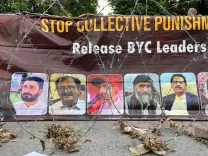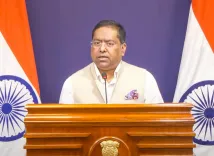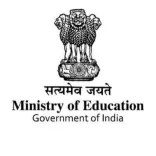Did 150 Students Just Graduate from the India-Supported IT Center at Cambodia's Buddhist University?

Synopsis
Key Takeaways
- 150 students graduated from IT Centre in Cambodia.
- Funded by the Government of India through the Mekong-Ganga Cooperation.
- Quick Impact Projects aim to enhance socio-economic development.
- A total of 48 projects have been approved so far.
- India-Cambodia relations are deeply rooted in cultural ties.
Phnom Penh, July 26 (NationPress) A remarkable 150 students celebrated their graduation at the Preah Sihanoukraja Buddhist University IT Centre in Cambodia on a Saturday, a facility established as a Quick Impact Project (QIP) under the Mekong-Ganga Cooperation (MGC), funded by the Government of India.
The ceremony saw graduates receiving their certificates from embassy officials and university faculty.
Through the QIP, India provides grant assistance of US$ 50,000 annually for the execution of five socio-economic projects in Cambodia.
The MGC was founded in November 2000, comprising six member nations: Cambodia, Laos, Myanmar, Thailand, Vietnam, and India.
From 2015 to 2018, a total of 15 Quick Impact Projects were approved and executed, focusing on areas such as agriculture, health, women's empowerment, capacity building, sanitation, and environmental sustainability.
These initiatives received positive feedback and made a notable difference for the beneficiaries. During the Cambodian Prime Minister Hun Sen's visit to India in January 2018, Prime Minister Narendra Modi announced an expansion of QIPs from five to ten annually in Cambodia.
To date, 48 projects have been approved, with 31 completed and 17 in various implementation stages.
The historical ties between India and Cambodia are deeply rooted in shared Hindu and Buddhist cultural influences originating from India. While Cambodia is predominantly a Buddhist nation, there remains a significant presence of Hindu traditions, rituals, and mythology.
India established diplomatic relations with Cambodia in 1952, a year before Cambodia gained independence from France. Following Cambodia's independence in 1953, India was viewed as a trusted ally and source of inspiration for Cambodian leaders.
There is a strong sense of goodwill towards India in Cambodia, bolstered by consistent political and official interactions, bilateral visits, humanitarian aid, capacity-building initiatives, cultural exchanges, concessional loans for development projects, and temple restorations.









